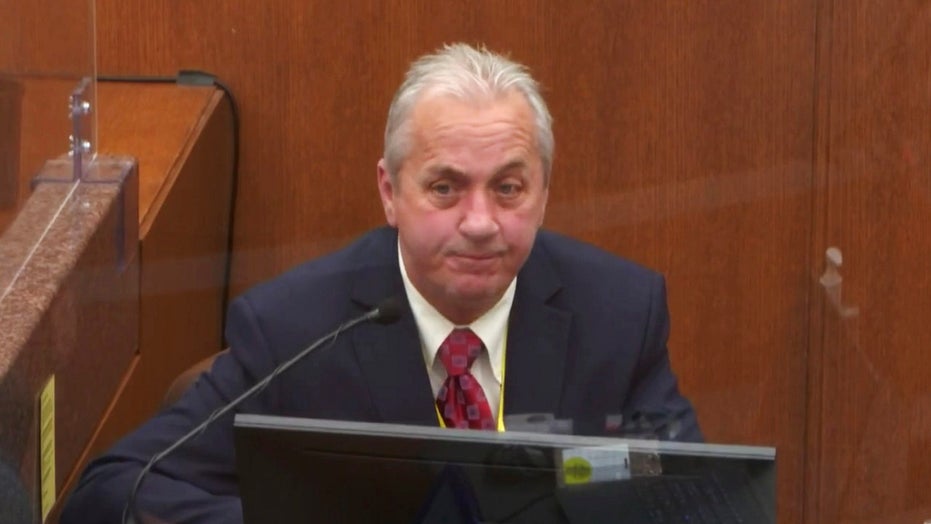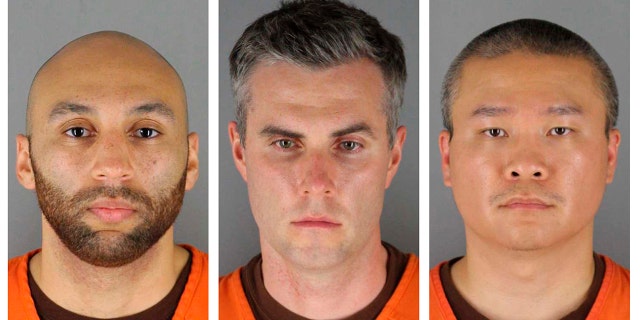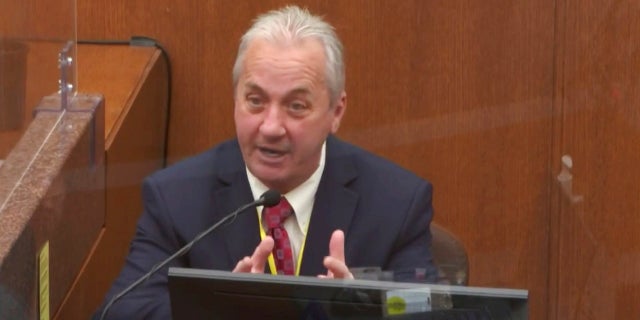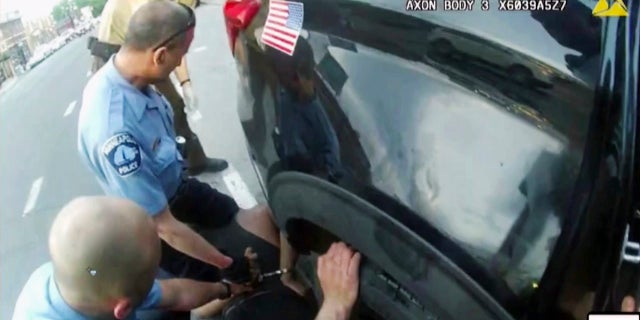Home » World News »
Minneapolis police officers at George Floyd arrest should have intervened, longtime cop testifies
Fox News Flash top headlines for February 10
Fox News Flash top headlines are here. Check out what’s clicking on Foxnews.com.
The trio of former Minneapolis officers who responded to the scene where Derek Chauvin ultimately held his knee on George Floyd’s neck for more than nine minutes should have stepped in to stop their fellow cop, the head of the police department’s homicide unit testified Thursday.
Minneapolis Police Lt. Richard Zimmerman took the stand on Thursday in the civil rights trial against former Officers J. Alexander Kueng, Thomas Lane and Tou Thao, telling the jury: “If you see another officer using too much force or doing something illegal, you need to intervene and stop it.”
Zimmerman, MPD’s most senior officer, added that the duty can also mean intervening to begin first aid if another officer fails to give it, and that it can mean moving an officer out of the way if necessary.
Asked what Chauvin was doing that was significant to him, Zimmerman replied: “The knee on the neck — the officers should have intervened at that point and stopped it. … It can be deadly.”
Kueng, Lane and Thao are accused of depriving Floyd, 46, of his civil rights by failing to give him medical aid while he was handcuffed, facedown with Chauvin’s knee pressed onto his neck for nine and a half minutes on May 25, 2020. Kueng and Thao are also accused of failing to intervene to stop the killing, which triggered protests worldwide and a reexamination of racism and policing.
Zimmerman said he’s been aware of the duty to intervene since he first became a law enforcement officer in 1981. He joined the Minneapolis department in 1985 and has been a member of the homicide unit since 1995.
Zimmerman also testified in Chauvin’s state trial last year that resulted in murder and manslaughter convictions. He said that keeling on Floyd’s neck was “totally unnecessary.”
This combination of photos provided by the Hennepin County Sheriff’s Office in Minnesota on June 3, 2020, shows, from left, former Minneapolis police officers J. Alexander Kueng, Thomas Lane and Tou Thao.
(Hennepin County Sheriff’s Office via AP, File)
The defense has pointed out that Chauvin was the most senior officer at the scene and argued that the others were trained to obey him. Lane and Kueng were rookies, while Thao had been with the department around eight years.
But rank and seniority don’t change the duty to intervene, Zimmerman said. The policy applies to every officer in the city from the chief on down.
“We all wear the same badge,” he said.
Kueng, who is Black, Lane, who is White, and Thao, who is Hmong American, are charged with willfully depriving Floyd of his constitutional rights while acting under government authority. The charges allege that the officers’ actions resulted in Floyd’s death.
In this image from video, witness Lt. Richard Zimmerman of the Minneapolis Police Department, testifies as Hennepin County Judge Peter Cahill presides Friday, April 2, 2021, in the trial of former Minneapolis police Officer Derek Chauvin at the Hennepin County Courthouse in Minneapolis, Minn.
(Court TV via AP, Pool)
On Thursday, Zimmerman also discussed his interviews with the officers immediately after Floyd’s killing
Prosecutor Samantha Trepel, from the Department of Justice civil rights division, played a portion of Lane’s body camera video that showed Zimmerman walking up to Lane and Kueng and asking them what happened. They weren’t sure of Floyd’s condition, but they recounted elements of their struggle to try to put Floyd in their squad car after they responded to a report of someone passing a counterfeit $20 bill.
“He kind of seemed like he was on something.. … He was fighting the whole time,” Lane says.
Kueng tells the lieutenant that they decided to keep Floyd held to the ground. He says Floyd was bleeding, but that an ambulance was en route.
One of the officers said Floyd was still breathing when they loaded him into the ambulance.
FILE – In this image from police body camera video shown as evidence in court, paramedics arrive as Minneapolis police officers, including Derick Chauvin, second from left, and J. Alexander Kueng restrain George Floyd in Minneapolis, on May 25, 2020.
(Minneapolis Police Department via AP, File)
Zimmerman said Lane and Kueng told him nothing about having kept Floyd on the ground without rolling him over, about Chauvin keeping his knee or Chauvin’s neck, about their being unable to find a pulse, or about Lane performing CPR in the ambulance.
Earlier Thursday, a forensic scientist with the Minnesota Bureau of Criminal Apprehension testified about drugs that investigators found in the squad car they had struggled to put Floyd into. McKenzie Anderson, who oversaw the processing of the car, acknowledged that she didn’t seize the drugs until a second search of the vehicle in January 2021.
She said they tested positive for methamphetamine. A pill also tested positive for Floyd’s DNA.
On Wednesday, Dr. Vik Bebarta, an emergency physician and toxicologist and professor at the University of Colorado in suburban Denver, testified that Floyd did not die from the low levels of fentanyl and methamphetamine in his system, but from a lack of oxygen to his brain.
Fox News’ Mills Hayes contributed to this report, as well as The Associated Press.
Source: Read Full Article






